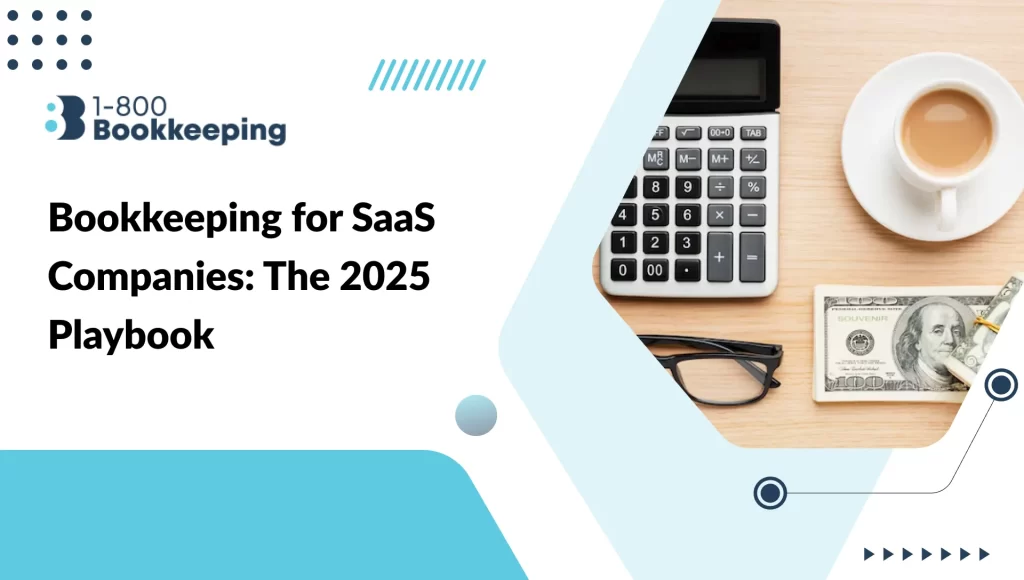Bookkeeping for consultants starts with clear, accurate numbers that tell the story of every project and every client. In a profession where time equals money, solid records cut stress, boost profits, and keep the taxman satisfied. This guide shows consultants how to build a financial system that runs as smoothly as their advice.
What Is Bookkeeping for Consultants?
Bookkeeping for consultants covers the daily recording and organization of income, expenses, and project costs. It tracks billable hours, reimbursable expenses, retainers, and milestone payments so that each engagement stays profitable. Unlike broad business bookkeeping, consultant bookkeeping leans on project tagging and time tracking because revenue often shifts with each contract.
Importance of Accurate Financial Records in Consulting Businesses
Precise books deliver three advantages: sharper pricing, faster decisions, and lower tax bills. When you know your real costs per hour, you can price engagements with confidence and avoid underbidding. Up‑to‑date ledgers also let you spot scope creep early and adjust. Come tax season, clean records mean fewer deductions missed and less time hunting for receipts.
Understanding Consultant Accounting Needs
Bookkeeping vs. Accounting: Key Differences for Consultants
Bookkeeping captures daily transactions. Accounting interprets them. For consultants, bookkeeping covers invoices, expense reports, and bank feeds, while accounting turns that data into financial statements and tax filings. Both functions work together, but bookkeeping forms the foundation.
Cash vs. Accrual Accounting Methods for Consulting Firms
Cash accounting records revenue when money hits the bank. Accrual accounting recognizes income when work is delivered, even if payment arrives later. Solo consultants often start with cash because it is simple and IRS friendly under $25 million in revenue. Larger practices shift to accrual to match revenue with project costs for clearer profit margins.
Managing Project‑Based Finances
Each client project deserves its own mini‑ledger. Tag every expense, time entry, and invoice to a project code. This habit reveals which contracts drive profit and which drain resources. It also simplifies fixed‑fee engagements by showing when costs threaten to overrun the quote.
Partnering with Professional Bookkeeping Services for Consultants
At 1‑800 Book Keeping we understand project‑based revenue, time tracking, and the unique tax breaks consultants enjoy. With cloud dashboards, real‑time alerts, and dedicated support, 1‑800 Book Keeping keeps your numbers sharp so you can focus on client results. Learn more about out consultant packages at https://1800bookkeeping.com/consultants.
Setting Up Your Consulting Business’s Financial Infrastructure
Creating a Chart of Accounts Tailored for Consultants
A tight chart of accounts sorts revenue into categories such as billable hours, retainers, and reimbursements. Expenses break down into travel, subcontractors, software, and professional development. Keep it lean—20 to 30 accounts max—so reports stay readable.
Establishing a Dedicated Bank Account for Your Consulting Business
Separate business and personal funds. A business checking account streamlines reconciliation and proves professionalism to clients. Pair it with a business credit card to capture travel points while keeping receipts in one place.
Daily and Weekly Bookkeeping Tasks
Recording Financial Transactions Promptly and Accurately
Log expenses the same day. Snap receipts with your phone and upload them to your software. Record time daily, not at week’s end, to bill clients accurately.
Reconciling Bank Statements Regularly
Match bank feeds against the ledger each week. Quick matches show healthy books. Unmatched items signal missing entries or potential fraud.
Managing Accounts Payable and Receivable
Send invoices on project milestones or at month‑end, whichever comes first. For payables, schedule vendor payments a few days before due dates to preserve cash without risking late fees.
Monthly and Quarterly Financial Management
Preparing and Reviewing Financial Statements
Balance Sheet
The balance sheet lists assets, liabilities, and equity. Consultants track cash, accounts receivable, prepaid expenses, and any short‑term debt.
Income Statement
Also called the profit and loss, it summarizes revenue and expenses for the period. Segment revenue by service line—advisory, training, or implementation—to see which drives growth.
Cash Flow Statement
Cash flow tracks money entering and leaving the bank. Positive cash flow means projects pay faster than expenses burn.
Budgeting: Developing and Monitoring Your Consulting Business’s Budget
Set quarterly revenue goals and expense limits. Compare actuals to budget with a monthly bookkeeping review. If travel overruns by 15 percent, adjust pricing or tighten itineraries.
Conducting Internal Financial Reviews and Audits
Run a self‑audit each quarter. Check that invoices tie to signed statements of work and that all expenses carry receipts. This habit prevents surprises during an external audit.
Annual Compliance and Reporting
Filing Tax Returns and Understanding Their Components
Schedule C for sole proprietors or Form 1120‑S for S corporations captures income and deductions. Common consultant deductions include home office, mileage, and professional insurance.
Preparing for External Audits
Keep engagement letters, W‑9 forms, and bank statements organized by year. Auditors love tidy folders and clear trails.
Reviewing and Updating Financial Policies and Procedures
Document how you approve expenses, bill clients, and store receipts. Review the policy annually to reflect new tools or regulatory changes.
Managing Client Billing and Invoicing
Creating Professional Invoices for Consulting Services
Use branded templates with clear payment terms, project codes, and a link to pay online. Shorter invoices get paid faster.
Tracking Billable Hours and Expenses
Pair a time tracker like Harvest or Toggl with your accounting software. Log expenses to the same project code so you can rebill quickly.
Managing Retainers and Project‑Based Billing
Retainers smooth cash flow. Bill a fixed monthly amount and reconcile hours against it. For fixed‑fee projects, schedule progress payments tied to deliverables.
Internal Controls and Fraud Prevention
Implementing Segregation of Duties
Even solo consultants can split duties by using approval workflows in software. For example, review expense reports before they sync to the ledger.
Establishing Approval Processes for Expenditures
Set dollar thresholds that trigger a second look. Large purchases require written justification and a signed vendor quote.
Conducting Regular Financial Oversight and Reviews
Invite a peer or accountant to review books quarterly. A fresh set of eyes spots patterns you might miss.
Leveraging Technology in Consultant Bookkeeping
Utilizing Cloud‑Based Accounting Solutions
Cloud tools update in real time and back up automatically. They also allow accountants to log in remotely and resolve issues quickly.
Integrating Time Tracking and Project Management Tools
Connect platforms such as Asana or Trello with your accounting app. When a task moves to “done,” the system can prompt an invoice.
Automating Repetitive Bookkeeping Tasks
Rules can auto‑categorize recurring expenses like software subscriptions. Bank feeds can auto‑match deposits to invoices. Automation frees hours each month.
Best Practices for Consultant Bookkeepers
Staying Informed on Accounting Standards Relevant to Consultants
Follow the Financial Accounting Standards Board updates and IRS bulletins. Subscribe to industry newsletters for timely alerts.
Engaging in Continuous Professional Development
Attend webinars or earn a bookkeeping certification. Up‑to‑date skills mean fewer errors and better advice for clients.
Collaborating with Clients and Financial Advisors
Hold a monthly check‑in with each client. Share a one‑page dashboard that highlights revenue, costs, and key metrics. Collaboration builds trust and renewals.
Common Challenges and How to Overcome Them
Dealing with Irregular Income Streams
Set aside 30 percent of each payment in a tax and reserve account. Build a three‑month cash cushion to ride out slow seasons.
Ensuring Timely and Accurate Financial Reporting
Block a recurring calendar slot every Friday for bookkeeping tasks. Consistency keeps data fresh and errors small.
Handling Complex Project‑Based Accounting
Break large projects into phases with their own budgets. Use job costing features in your software to track actual costs against estimates.
Conclusion
The Role of Effective Bookkeeping in Achieving Your Consulting Business’s Success
Clean books reveal the health of every engagement and the true value of your time. They support smarter bids, stronger cash flow, and confident growth plans.
Feeling Overwhelmed by Bookkeeping? We Can Help.
Running a business is demanding, and keeping track of your finances can be a never-ending chore. Many business owners need help with the complexities of bookkeeping, which can leave them frustrated and behind.
1-800 Bookkeeping offers expert services to streamline your financial processes and empower you to make informed decisions.
Our team of seasoned professionals understands the unique challenges businesses of all sizes face. We can help you:
Free Up Valuable Time: Offload your bookkeeping tasks to our dedicated professionals.
- Gain Peace of Mind: Ensure your financial records are accurate and up-to-date.
- Make Smarter Decisions: Get actionable insights into your business performance through clear and concise reports.
- Feel Confident: Make informed financial decisions based on reliable data.
Don’t let bookkeeping hold you back from achieving your business goals. Contact 1-800 Bookkeeping today for affordable bookkeeping solutions.
FAQs
1. What bookkeeping method is best for solo consultants? Cash accounting often fits solo consultants because it is simple and aligns income with bank deposits.
2. How should consultants track reimbursable expenses? Tag each expense to a project in your accounting software and attach a digital receipt. Rebill clients in the next invoice cycle.
3. Do consultants need separate business bank accounts? Yes. A dedicated account simplifies reconciliation and proves professionalism.
4. How often should I review my consulting firm’s budget? Check actuals against the budget monthly and adjust forecasts quarterly.
5. Can bookkeeping software integrate with my time tracker? Most modern platforms sync with tools like Harvest or Toggl, letting you push billable hours straight into invoices.





